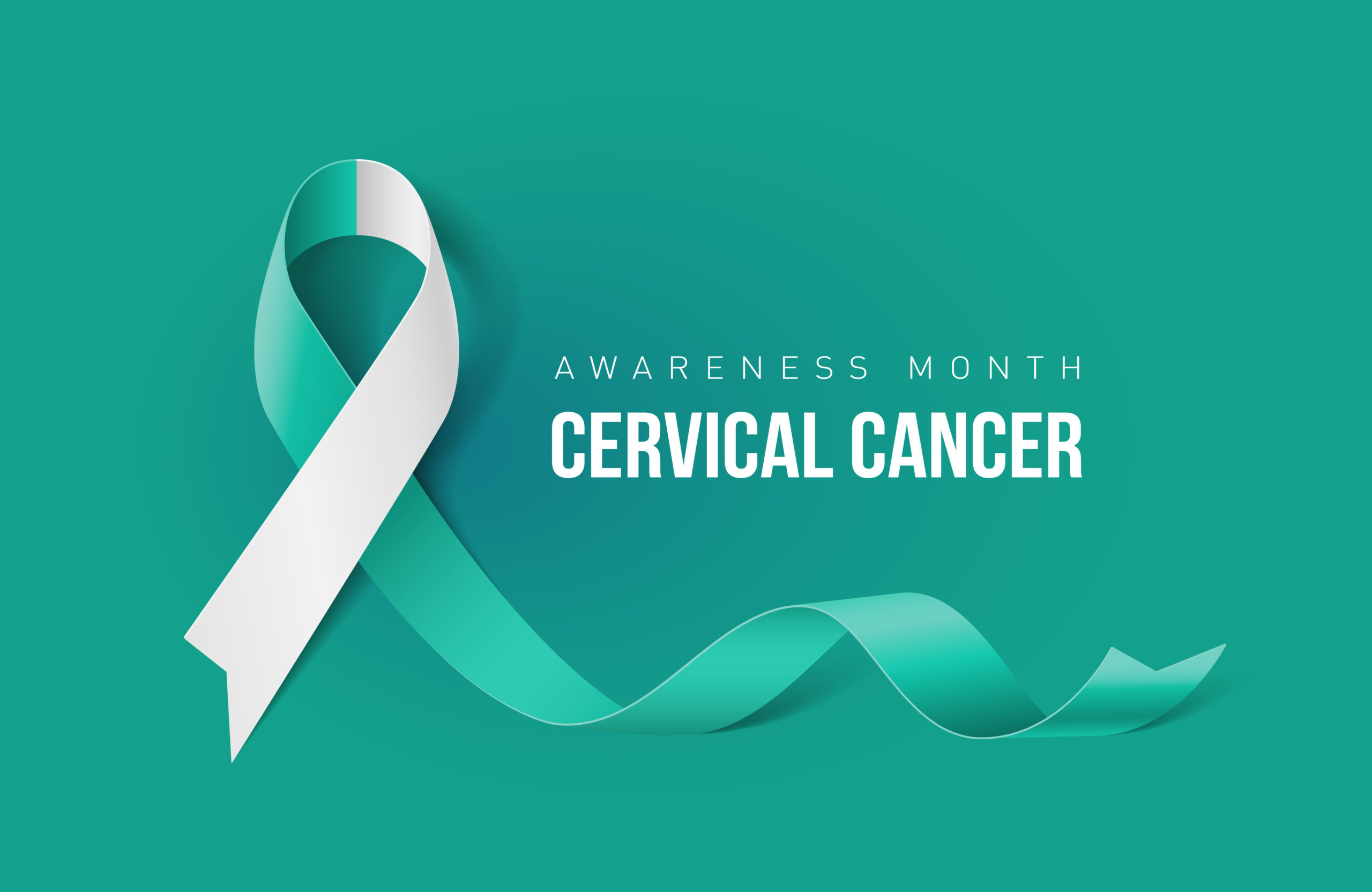Five Common Causes of Cervical Cancer – and What You Can Do to Lower Your Risk
Jan 27, 2023, 10:38 AM | Updated: Apr 14, 2023, 12:19 pm

Photo: Adobe Stock
This article about access to healthcare is sponsored by Intermountain Health.
Did you know that cervical cancer is the fourth-most common cancer in women around the world?
In fact, more than 14,000 women in the United States alone are diagnosed with cervical cancer each year, but thanks to early screenings, testing, and vaccination, cervical cancer is preventable – and most importantly, treatable.
January is National Cervical Cancer Awareness month and cancer experts at Intermountain Health are working to educate women about cervical cancer, the tests that can warn women about potential cancer, and the importance of vaccination.
What is cervical cancer?
Cervical cancer occurs when cells grow abnormally in the cervix. The cervix is the lower portion of the uterus which connects to the vagina. The cells in the cervix don’t suddenly change into cancer. Instead, these cells slowly develop into abnormal cells called dysplasia, which can progress into cancer over time if untreated. This process usually takes several years.
Cervical cancer is commonly diagnosed around the age of 30, although the average age of diagnosis is 50.
Nearly all cervical cancer is caused by infection with the human papillomavirus (HPV). HPV is a group of more than 150 viruses that are highly contagious and very common. Nearly 85% of all people will be infected with HPV during their lifetime.
Fortunately, most people will recover from the virus before it causes any significant problems. HPV causes cancer when a person’s body is unable to fight off the infection and it continues to cause changes in cells that eventually become cancer.
“If these changes which HPV causes in cells are not found and treated in their earliest stages, they can become cancer and spread to other tissues or organs,” said Ned Williams, MD, radiation oncologist for Intermountain Health, who is based at Intermountain St. George Regional Hospital. “This is why early prevention and screening are so important.”
What are common signs and symptoms of cervical cancer?
Common symptoms of cervical cancer may include: vaginal bleeding, vaginal bleeding between periods, vaginal bleeding after menopause, watery vaginal discharge or vaginal discharge with a foul odor, and pelvic pain.
Five Common Causes and Risk Factors:
A number of risk factors can increase your chances of getting cervical cancer. The most common risk factors for cervical cancer are:
- HPV: There are over a hundred of types of the human papillomavirus. About 15 high risk types are known to cause cancer. HPV has been found in body fluids such as saliva, semen, and vaginal fluid but is most often passed from one person to another through direct physical contact. It is a common cause of genital warts and can infect the cells of the mouth, throat, genitals, and anus.
- Smoking: Smoking increases the chance of getting almost all cancers. Women who smoke are almost twice as likely to get cervical cancer.
- Becoming sexually active at a young age: Women who become sexually active before age 18 are more likely to contract the HPV virus and the virus is more likely to persist in their bodies. Women with multiple sexual partners are also more likely to contract the HPV virus and develop cervical cancer.
- A weakened immune system: Other illnesses that attack the body’s disease-fighting system (immune system), such as HIV (the virus that causes AIDS) or an organ transplant have a greater risk of developing cervical cancer.
- Other sexually transmitted infections – Other sexually transmitted infections such as chlamydia or gonorrhea result in inflammation and a higher possibility of contracting the HPV virus. Left untreated, these infections can also cause infertility.
Prevention
Women can do several things to reduce their chance of getting cervical cancer including: get regular Pap testing, don’t smoke, get the HPV vaccine, and limit their number of sexual partners.
How is Cervical Cancer diagnosed?
A screening test, called a Pap smear, can find abnormal cells before they become cancer. During a Pap smear, cells from the cervix are collected and examined under a microscope to check for the presence of cancer.
Intermountain Healthcare follows the recommendations from several national organizations that all women begin cervical cancer screening with a Pap test at age 21. Women should have a Pap test every three years until age 29.
From age 30 to age 65, women should either continue to have a Pap test every three years – or can choose to have an HPV test every five years.
The HPV test looks for high-risk types of HPV that can cause cervical cancer. It can be either positive or negative. A positive HPV test result means you have an HPV infection with a high-risk type of HPV and may be at risk for cervical cancer.
These two tests are sometimes done together. If you receive abnormal test results, your doctor may request additional tests to further investigate.
“Being aware of, and participating in these tests at the recommended ages, can make a difference for many women,” says Jon Grant, MD, radiation oncologist at Intermountain Health. “Intervening early on in a diagnosis could truly save lives. Please keep up to date on your cervical cancer screenings.”
How is Cervical Cancer Treated?
Treatment options depend on the stage of the cancer, overall patient health, and patient preferences. However, the most common treatments are surgery, radiation therapy, and chemotherapy.
What is the HPV vaccine?
The HPV vaccine helps keep people fight off HPV infection and helps prevent an HPV infection from causing cancer. Besides cervical cancer, HPV infection can also cause throat cancer, mouth cancer, anal cancer, vaginal cancer, penile cancer, and vulvar cancer. The HPV vaccine helps prevent these cancers too. The vaccine does not prevent any other types of sexually transmitted infections.
Who should get the HPV vaccine?
It’s recommended that boys and girls get the vaccine between ages 9-14 and adolescents and adults can get the vaccine up to the age of 45. For those who are 15 years and older, treatment consists of three vaccines over six months. Children younger than 15 years receive two vaccines six months apart.
It’s best to start the vaccine before becoming sexually active, but vaccination at any age up to 45 may be helpful in preventing problematic HPV infection and in preventing many cancers including cervical cancer. Talk to your provider about HPV vaccination to see if it’s right for you.
Do women still need a pap smear if they get the HPV Vaccination?
- Even if a woman has had the HPV vaccine, it is still recommended that she start receiving regular pap smears at 21 years of age to test for cervical changes and HPV.
Are there signs and symptoms of HPV infection?
Most people infected with HPV don’t experience any signs or symptoms and usually never develop any problems from the infection.
For more information on cervical cancer, HPV vaccine, Pap Smears, or to find a physician to address cervical cancer, visit www.Intermountainhealthcare.com/cancer or go here.
Disclaimer: The information provided should not be used for diagnosing or treating a health problem or disease, and those seeking personal medical advice should consult with a licensed physician. Always seek the advice of your doctor or other qualified health provider regarding a medical condition.
Related articles:
- With These 4 Things to Do In Moab Utah, Are You Ready for Your Next Family Adventure?
- How to have the best of both worlds for your house | Home security and curb appeal
- What Differentiates BYU’s MBA Program from Other MBA Programs
This is a sponsored article brought to you by KSL News Radio in conjunction with the advertiser. The advertiser paid a fee to promote this article and may have influenced or authored the content. The views expressed in this article are those of the advertiser and do not necessarily reflect those of KSL News Radio, its parent company, or its staff.








